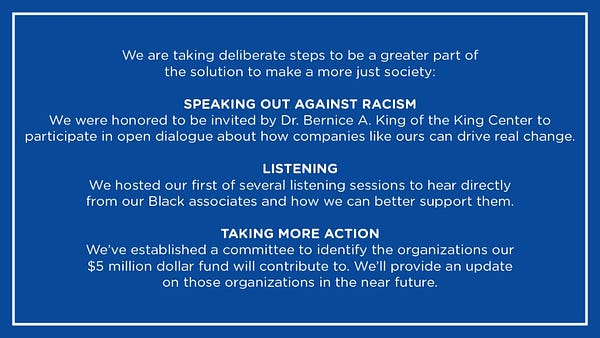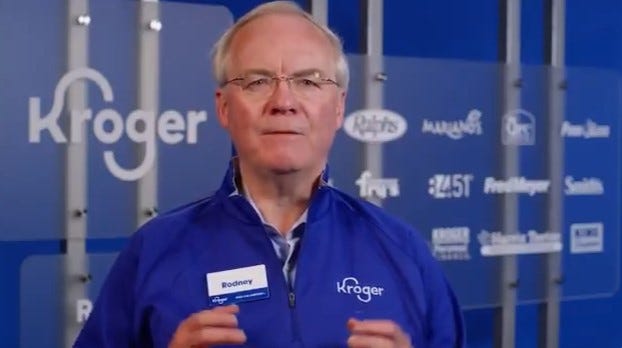 |
Kroger, the nation's largest chain of grocery stores, has publicly embraced the Black Lives Matter movement, pledging to "better support our Black associates, customers, and allies."
Kroger CEO Rodney McMullen, in a video posted to Twitter, said Kroger needs "to express we are against racism and injustice in the black community" and said the company was allowing "associates to openly share their thoughts, feelings, and experiences with discrimination."
So many of our associates, families, friends, customers, and communities are hurting, frustrated, and angry. The senseless killing of George Floyd, Breonna Taylor, Ahmaud Abery and so many more — too many more across our country — has shaken us to our core. We share in feelings of sadness, fear, and outrage. We must use our voice to express we are against racism, and injustice in the black community… We are creating more opportunities for associates to openly share their thoughts, feelings, and experiences with discrimination… To our black associates, customers, and allies: we see you, we hear you, we support you, and I stand with you.
The reality at Kroger-owned grocery stores, however, is far different. Some workers are not being permitted to use their "voice" or "share their thoughts" about discrimination. Instead, they are being silenced.
A source in the Washington DC area who works at a Harris Teeter, which is owned by Kroger, tells Popular Information that at least three workers wrote phrases supporting the Black Lives Matter movement on their masks. These phrases included "Black Lives Matter," "Am I Next?" and "I Can't Breathe." The people wearing these masks with these slogans were told by a manager that they had to change masks or go home.
Afterward, on June 4, Harris Teeter issued a rule in all 260 stores, citing its uniform policy, prohibiting the use of "slogans" on masks.
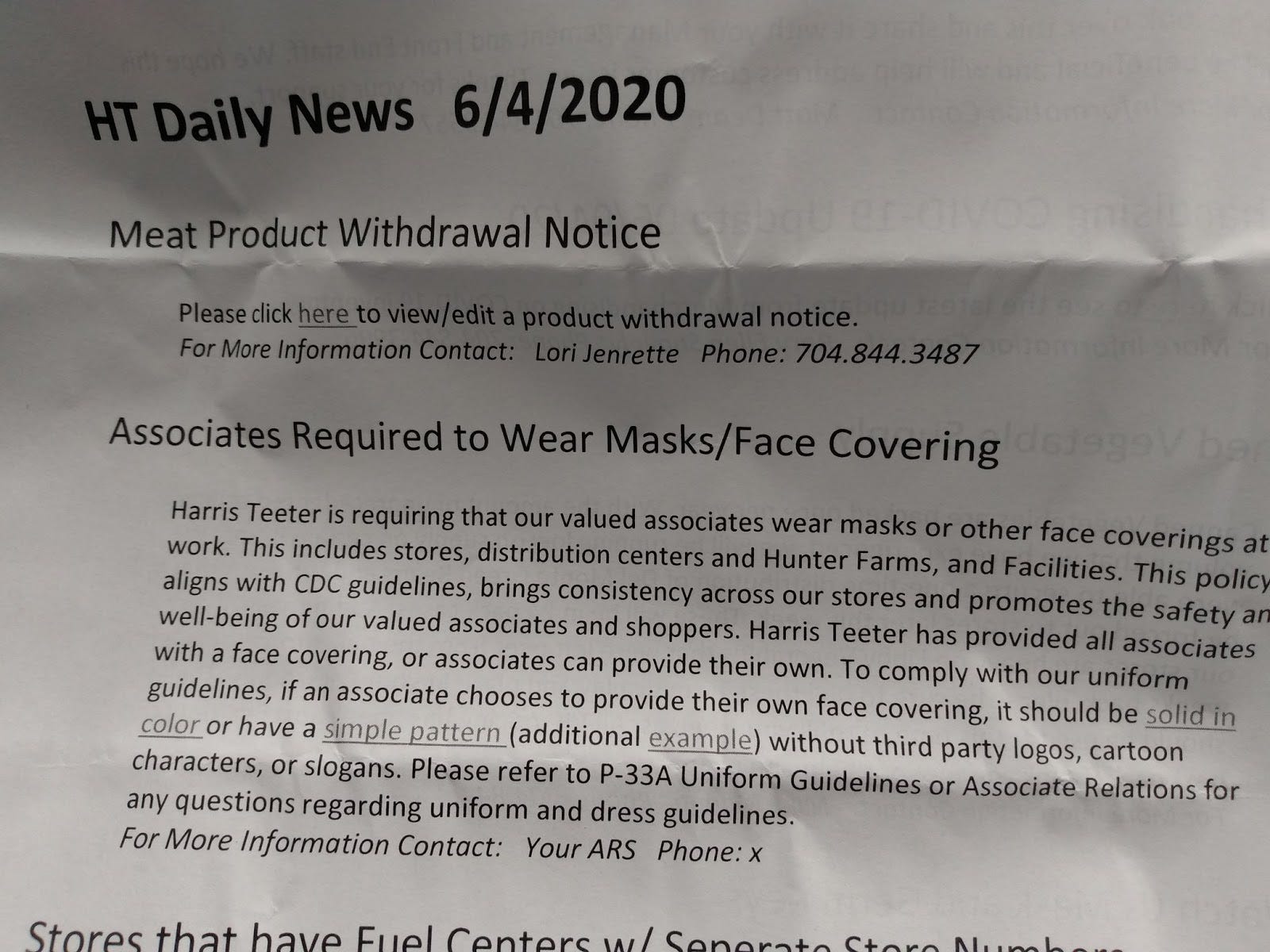 |
Last week, Starbucks was caught in the same kind of contradiction. The coffee chain was publicly aligning itself with the Black Lives Matter movement, but internally "Black Lives Matter attire was prohibited from the lists of things employees can wear due to its dress code policy."
The backlash caused Starbucks to quickly reverse course. Now, Starbucks employees are not only allowed to wear Black Lives Matter attire, but the company will also "provide 250,000 Starbucks-branded Black Lives Matter shirts for baristas and other employees who want them."
"Starbucks stands in solidarity with our Black partners, community and customers, and understands the desire to express themselves. We continue to listen to our partners about how they want to take a stand for justice," the company said in a statement.
Popular Information asked Kroger how the Harris Teeter mask policy was consistent with the statements from the company and its CEO about the Black Lives Matter movement. Kroger did not respond.
Kroger manager uses racist slur
In South Carolina, a Kroger manager allegedly used the n-word to refer to a Black employee. The slur was sent via text message. The manager intended to send it to a third-party but instead sent it back to the employee, who was experiencing a medical issue.
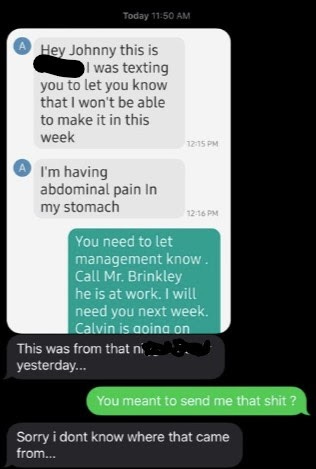 |
After the text message circulated on social media, Kroger fired the manager and issued this statement:
This language is in direct conflict with our company’s values and the stand we have taken against racism and other such forms of discrimination. The company does not and will not tolerate such behavior. This individual is no longer employed by our family of companies.
It's unclear, however, if Kroger has adequately addressed the issue. The man who was fired may have intended to send the message to different Kroger employee, suggesting a systemic problem. But Kroger has not announced any steps beyond terminating one person.
The employee who was targeted had recently graduated high school and, according to his brother, was traumatized by the incident. Community members believe the company's response was insufficient and are continuing the protest outside the store.
As COVID-19 pandemic intensifies in many Kroger locations, the company phases out bonus pay
The racial conflict at Kroger is playing out against the backdrop of an ongoing pandemic. On March 31, Kroger announced that it would provide a $2 per hour "hero pay" bonus to all workers. That bonus was scheduled to expire on May 17. But amid an uproar — fueled the disclosure of McMullen's $21 million salary — the company effectively extended it five weeks by providing a one-time $400 bonus to full-time employees and $200 for part-time employees.
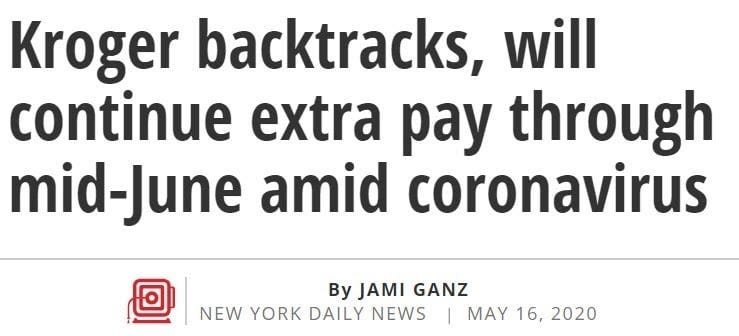 |
But that five-week extension period is almost over. Meanwhile, many states where Kroger stores are located are seeing record numbers of COVID-19 infections.
Kroger, for example, operates 123 stores in Arizona, which employ more than 19,000 people. Cases of COVID-19 are growing more rapidly in Arizona than in any other state in the country. New confirmed infections in Arizona "rose from roughly 200 infections a day in late May to more than 1,400 infections a day [last] week."
While increased testing has picked up more infections across the country, in Arizona the rate of positive tests also increased. There are also significant increases in "hospitalizations and deaths."
Kroger's "hero pay" was supposed to compensate workers for the increased risk of their jobs during the pandemic. But the risk to Kroger workers in Arizona is higher than ever. Still, Kroger is cutting worker pay.
 |
Overall, COVID-19 cases are increasing in 22 states. Kroger operates stores in 19 of them. Last week, Kroger employees in Virginia and West Virginia staged a caravan protest against the end of "hero pay."
As Popular Information previously reported, McMullen's 2020 bonus is tied to generating "free cash flow."
Moving forward, Kroger is eliminating [bonus] metrics related to customers and employees completely. Half of McMullen's 2020 bonus will be tied to him creating a total of $6.5 billion in free cash flow from 2018 to 2020.
So by cutting pay for hundreds of thousands of Kroger employees now, McMullen creates more free cash flow for the company. That gives McMullen, and the other top executives, a better chance of receiving the maximum possible bonus.
Numerous Kroger employees have died of COVID-19, including at least three in Colorado, five in Michigan, and one in Tennessee.
Thanks for reading!
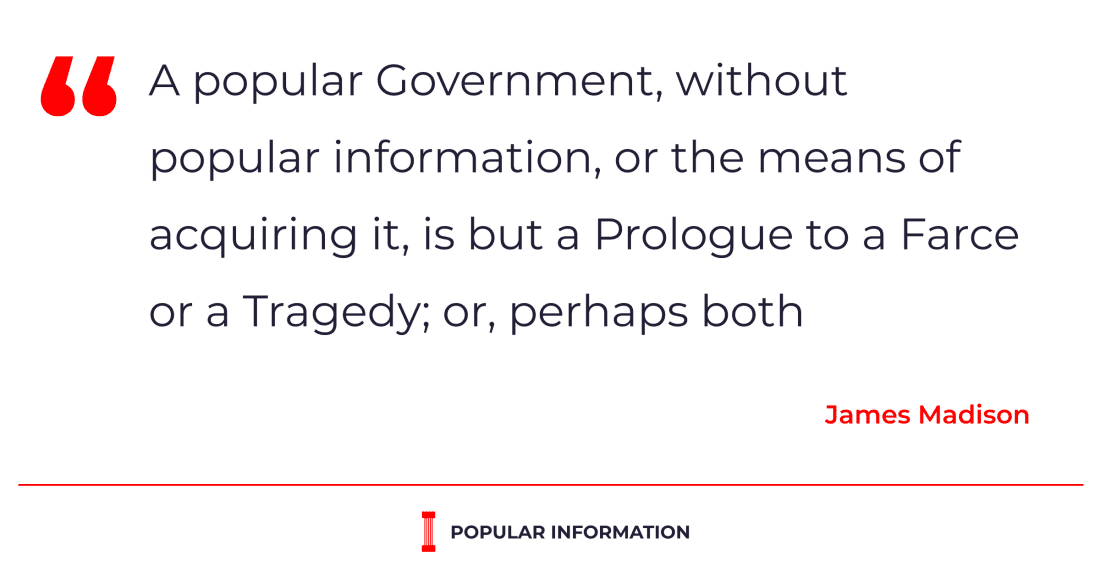 |


